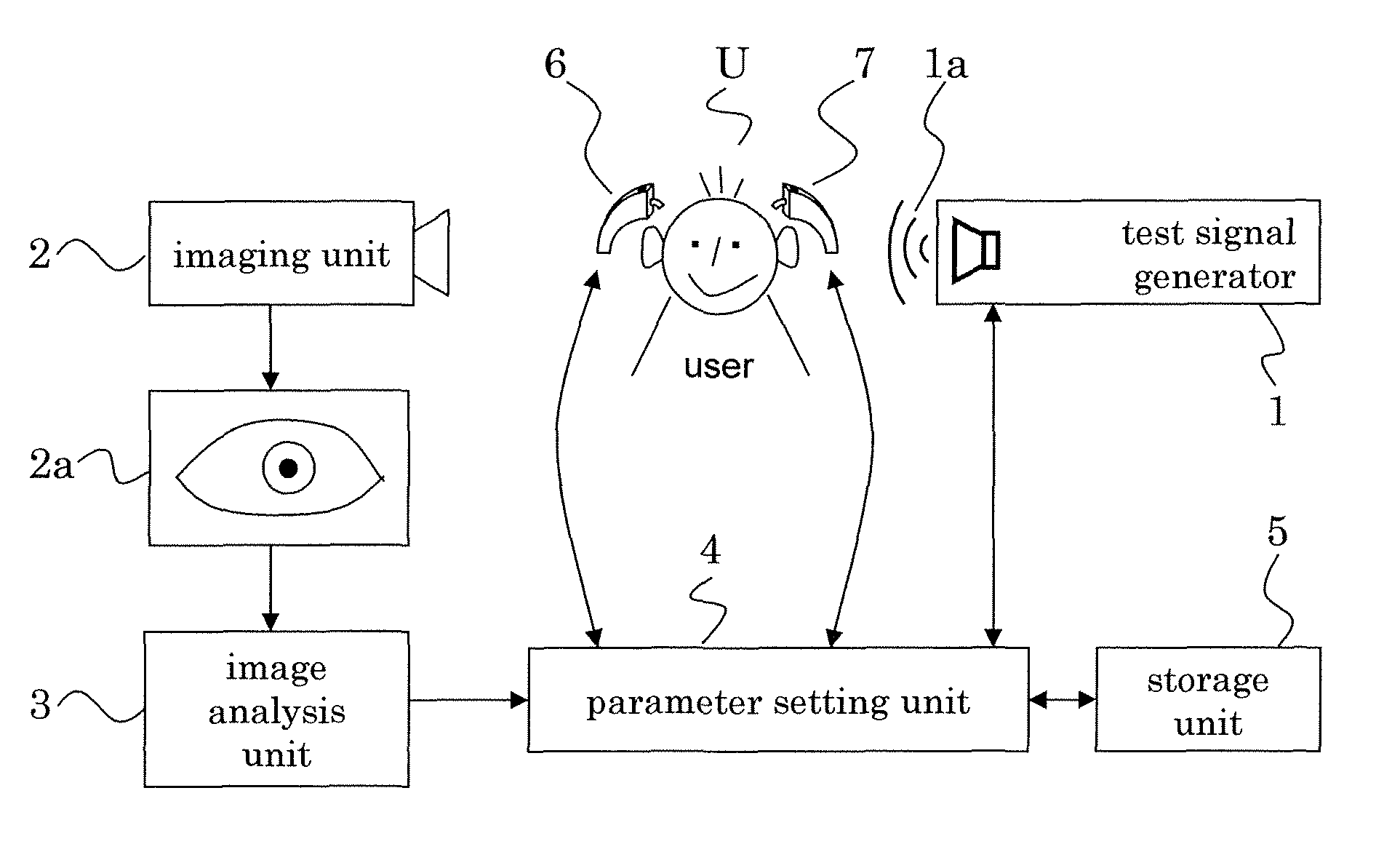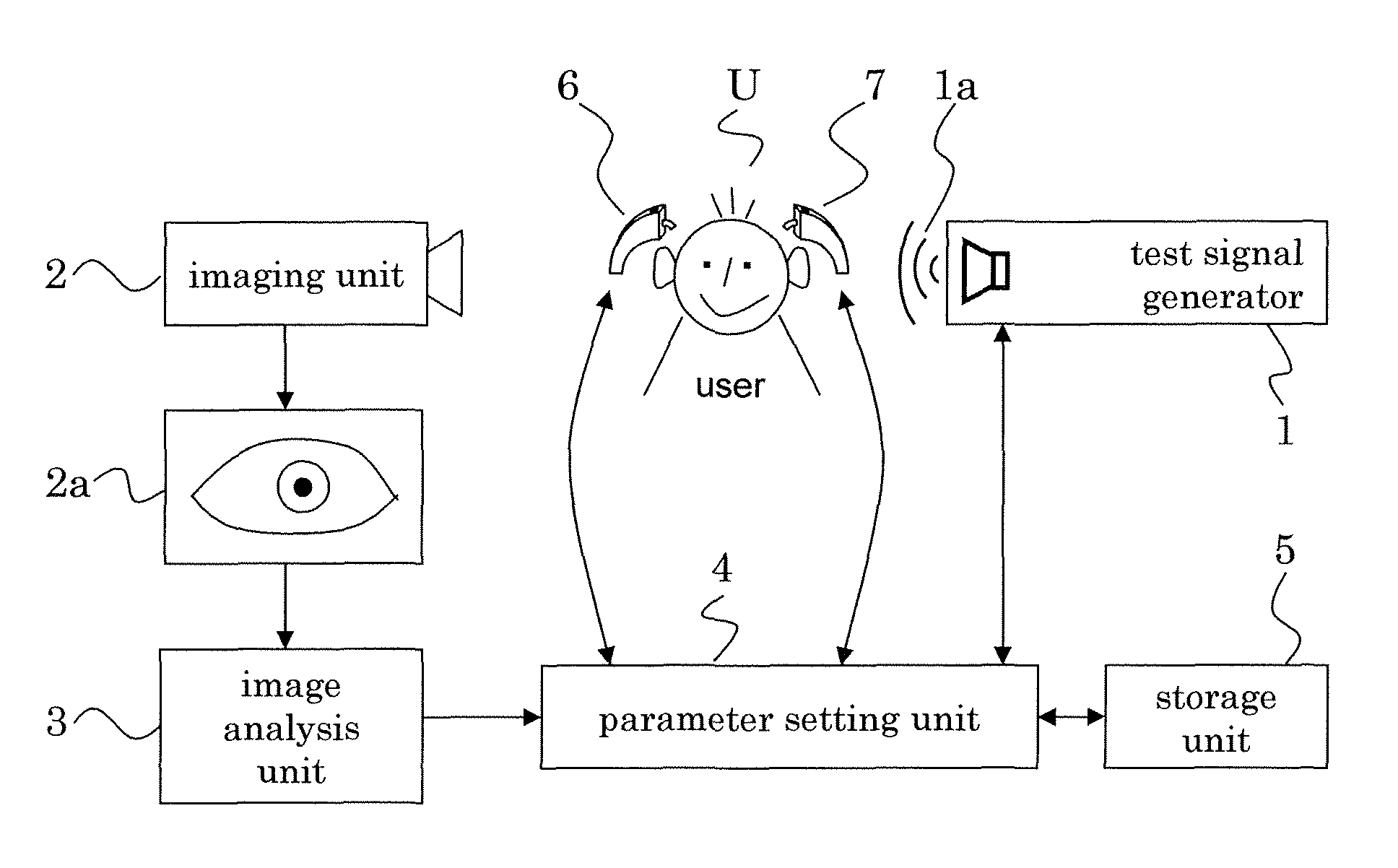Visually-based fitting of hearing devices
a visual-based, hearing-deaf technology, applied in the field of hearing-deaf devices, can solve the problem that the normal way of carrying out the fitting is not feasible, and achieve the effect of improving the fitting results
- Summary
- Abstract
- Description
- Claims
- Application Information
AI Technical Summary
Benefits of technology
Problems solved by technology
Method used
Image
Examples
Embodiment Construction
[0089]FIG. 1 shows a schematic illustration of an apparatus and a method according to the invention. The apparatus comprises a test signal generator 1, an imaging unit 2, an analysis unit 3, a parameter setting unit 4 and a storage unit 5, and it may comprise one or both hearing devices 6, 7 of an individual U, the hearing device user U. The hearing devices 6, 7, in particular the sound processing therein, is adjustable by means of adjustable parameters.
[0090]In order to adapt one or both hearing devices 6, 7 to the hearing needs and preferences of user U, i.e. to “fit” the hearing device(s) 6, 7, test signal generator 1 generates one or more test signals 1a to be auditorily perceived by user U. E.g., test signal generator 1 synthesizes, amplifies and outputs (via a loudspeaker) test tones, e.g., narrow-band signals, or present real-world sounds, in particular speech-containing sounds, wherein sampled sounds may be used.
[0091]During the presenting of the test signals 1a, or at least...
PUM
 Login to View More
Login to View More Abstract
Description
Claims
Application Information
 Login to View More
Login to View More - R&D
- Intellectual Property
- Life Sciences
- Materials
- Tech Scout
- Unparalleled Data Quality
- Higher Quality Content
- 60% Fewer Hallucinations
Browse by: Latest US Patents, China's latest patents, Technical Efficacy Thesaurus, Application Domain, Technology Topic, Popular Technical Reports.
© 2025 PatSnap. All rights reserved.Legal|Privacy policy|Modern Slavery Act Transparency Statement|Sitemap|About US| Contact US: help@patsnap.com


